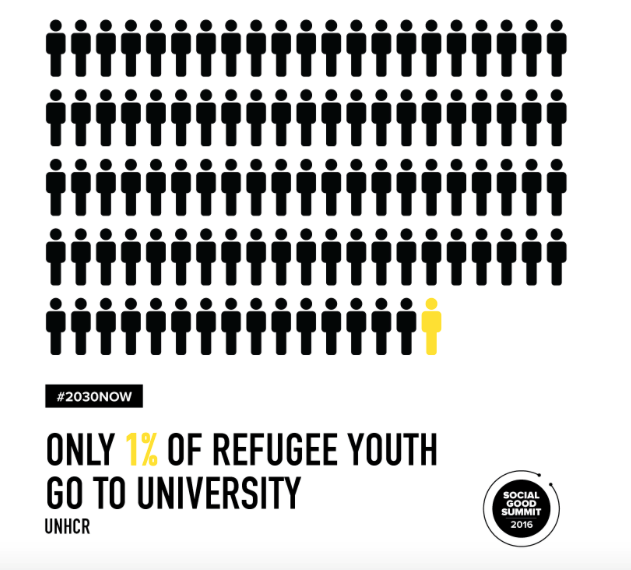Humanizing the Refugee Experience
Every day I wake up lucky to have an education, a roof over my head, a sense of stability, and future plans. For 65 million people around the world, this is not the case; they are fleeing from danger and face every type of insecurity imaginable on a day to day basis.
The overwhelming out-pour of love and respect for the Olympic refugee team was a relief to hear and further validated that the struggles of the refugees from Africa and the Middle East currently are not isolated stories, but a narrative that has woven its way through all of our lives. We now all know the story of someone who was once a refugee.
At the +SocialGood summit, BBC News Journalist and Broadcaster, Alan Kasujja, High Commissioner for Refugees Filippo Grandi and President and CEO of Save the Children Carolyn Miles led a panel on the refugee crisis; at one point Alan said, “We forget that refugees are humans too and we need to humanize their experience.”
A little over a year ago I was in Eastern Province, Rwanda living on the most breathtaking lake that our school used to irrigate the plants. A nearby community that also used the lake was a UNHCR refugee camp that housed Burundi refugees. Every day I sat atop the hill overlooking the lake to watch the sun rise and the sun set. On the other side of the lake another teenaged girl with dreams as big as the open Rwandan sky, and full of promise and opportunity just like me sat there. We lived off the same lake, sweat under the same African sun, walked the same land with a thousand hills, the bananas she ate were the same fingerling bananas I would eat for breakfast, plucked off trees with the same roots. But while I was in Rwanda to better my STEM skills, she would not see a school for many more weeks. And when her and her family try to move to a better country governments and world leaders greater than her will close the door; when her parents look for work they will be ridiculed for stealing local jobs; her future looks bleak and uncertain. But it doesn’t have to.
As citizens with skills and tools we can help those 65 million displaced people. We do not have to succumb to apathy. We must unite in love and hope. In fact the founder of Maison Shalom, winner of the Aurora award and Rwanda native herself Marguerite Brankitse shared her story of choosing love and forgiveness instead of hate in the face adversity. We, as a global community and global citizens within that community have a duty to speak up. We must tell our members of congress that refugees are important, valuable, and deserve to be more than a humanitarian cause, but a cause to improve the lives of humans. It can be as simple as telling your member of Congress to support House Bill 5735 to allow girls in vulnerable situations to get an education. Or sending supplies to your local branch of International Children’s Rescue or even more sponsoring a refugee family in your community.
There are 65 million people who need you. 65 million is an enormous number, but one is not. Every time you think about the plight of refugees or see it on the news think of a daughter, mother, brother, or father, a community member, a person, and be there for one person- it will make the world of a difference.




